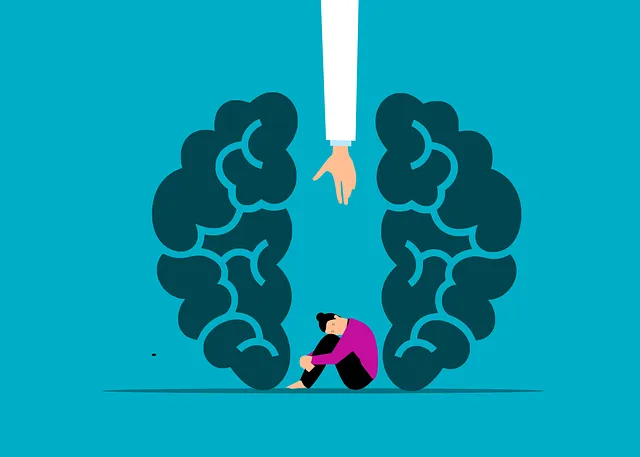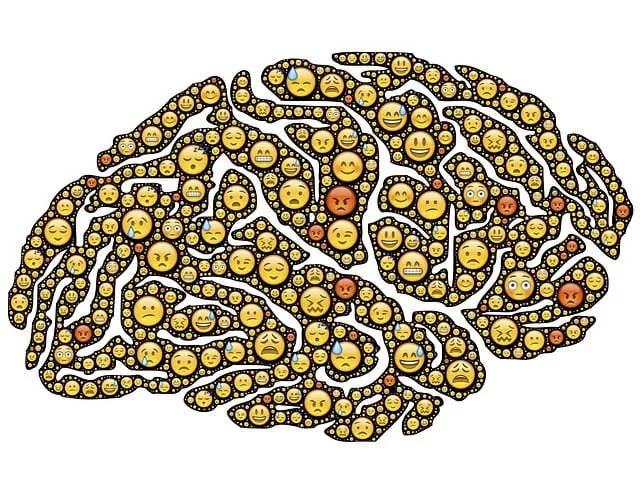Cultural sensitivity is paramount in mental healthcare, especially in diverse communities like Arvada, ensuring personalized care for all patients. Kaiser Permanente leads the way with initiatives like phone-based appointments and provider training, integrating cultural elements into therapy to build trust and improve outcomes. Effective communication, including learning basic phrases in patients' native languages, is key. Emotional Intelligence programs empower providers, reducing anxiety, depression symptoms, and mental illness stigma while enhancing patient satisfaction and overall well-being.
In today’s diverse society, cultural sensitivity in mental healthcare is paramount. This article explores strategies for providing inclusive and effective support, drawing from successful models like Kaiser Permanente’s approach to diverse communities. We examine the impact of cultural competence on patient outcomes and offer practical communication strategies tailored for mental health appointments in Arvada. For those seeking guidance, the Kaiser Permanente mental health appointment phone number in Arvada offers a starting point for navigating these critical issues.
- Understanding Cultural Sensitivity in Mental Healthcare
- Kaiser Permanente's Approach to Diverse Communities
- The Impact of Cultural Competence on Patient Outcomes
- Effective Communication Strategies for Arvada's Mental Health Appointments
Understanding Cultural Sensitivity in Mental Healthcare

Cultural sensitivity is a cornerstone in providing effective mental healthcare, especially when serving diverse communities like those around the Arvada area, where individuals from various ethnic and cultural backgrounds seek support. It involves recognizing and appreciating the unique beliefs, values, and practices that shape people’s lives and influence their mental health experiences. At Kaiser Permanente, for instance, understanding this aspect is vital to ensure every patient receives care tailored to their cultural needs during appointments at the Arvada mental health clinic.
This approach requires professionals in the field to engage in self-awareness exercises, continually educate themselves about different cultures, and adapt their practices accordingly. Incorporating elements from a patient’s cultural background into therapy can significantly enhance treatment outcomes. For instance, incorporating cultural references or specific therapeutic techniques that resonate with the client’s heritage can foster trust, engagement, and ultimately, better mental wellness. The Mental Health Awareness podcast series production often highlights these cultural considerations to promote understanding among healthcare providers and encourage them to offer more inclusive care.
Kaiser Permanente's Approach to Diverse Communities

Kaiser Permanente, a renowned healthcare organization, has been at the forefront of promoting cultural sensitivity in mental health services. Their approach to diverse communities is a model worth emulating. By recognizing and addressing the unique needs of various ethnic, racial, and cultural groups, Kaiser Permanente ensures that every patient receives tailored care. This commitment is evident through their dedicated efforts to improve access to mental healthcare for underserved populations.
The organization offers specialized services, including phone-based appointments with mental health professionals, such as those available at the Kaiser Permanente Arvada location. These appointments cater to individuals who may face barriers to in-person visits, ensuring cultural competency and understanding throughout the process. Additionally, Kaiser Permanente provides resources and training for healthcare providers on communication strategies and burnout prevention, emphasizing the importance of self-care in an effort to combat professional exhaustion while serving diverse communities.
The Impact of Cultural Competence on Patient Outcomes

Cultural sensitivity in mental healthcare is no longer a consideration—it’s a necessity. It significantly impacts patient outcomes, fostering trust and understanding between caregivers and patients from diverse backgrounds. When mental health professionals are culturally competent, they can create safe spaces tailored to each individual’s unique needs. This approach enhances engagement in treatment, improves adherence to care plans, and ultimately leads to better therapeutic outcomes.
For instance, a study conducted by Kaiser Permanente in Arvada, CO, highlighted that patients with cultural backgrounds previously underserved in mental health settings showed remarkable improvements in their conditions after being treated by culturally sensitive caregivers. This shift was marked by reduced symptoms of anxiety and depression, increased satisfaction with care, and better overall mental well-being. The integration of Emotional Intelligence and the implementation of Stress Reduction Methods tailored to diverse cultures played a pivotal role in these positive changes, while also contributing to Mental Illness Stigma Reduction Efforts.
Effective Communication Strategies for Arvada's Mental Health Appointments

Effective communication is a cornerstone of cultural sensitivity in mental healthcare practice, and understanding the diverse needs of Arvada’s communities is essential. When patients reach out to Kaiser Permanente’s mental health appointment phone number in Arvada, it’s crucial that professionals employ strategies that bridge cultural gaps and foster trust. This might include learning basic phrases in patients’ native languages or using culturally sensitive language to ensure appointments feel welcoming and non-judgmental.
Mental Health Education Programs designed with an emphasis on Emotional Intelligence can equip professionals with the skills to navigate cultural nuances. By integrating knowledge about different backgrounds, beliefs, and experiences into their practice, healthcare providers can create a safe space for patients to express themselves honestly. Additionally, Risk Management Planning for Mental Health Professionals should consider these cultural factors, ensuring that appointments are accessible, respectful, and effective, ultimately enhancing patient outcomes.
Cultural sensitivity is a cornerstone of high-quality mental healthcare, as evidenced by Kaiser Permanente’s successful approach in diverse communities. By prioritizing cultural competence, organizations like Kaiser can significantly improve patient outcomes. Effective communication strategies, as outlined for Arvada’s mental health appointments, are crucial tools to bridge cultural gaps and ensure every individual receives the compassionate care they deserve. For those seeking support, contacting the Kaiser Permanente mental health appointment phone number in Arvada is a step towards navigating this important aspect of healthcare with expertise and understanding.






